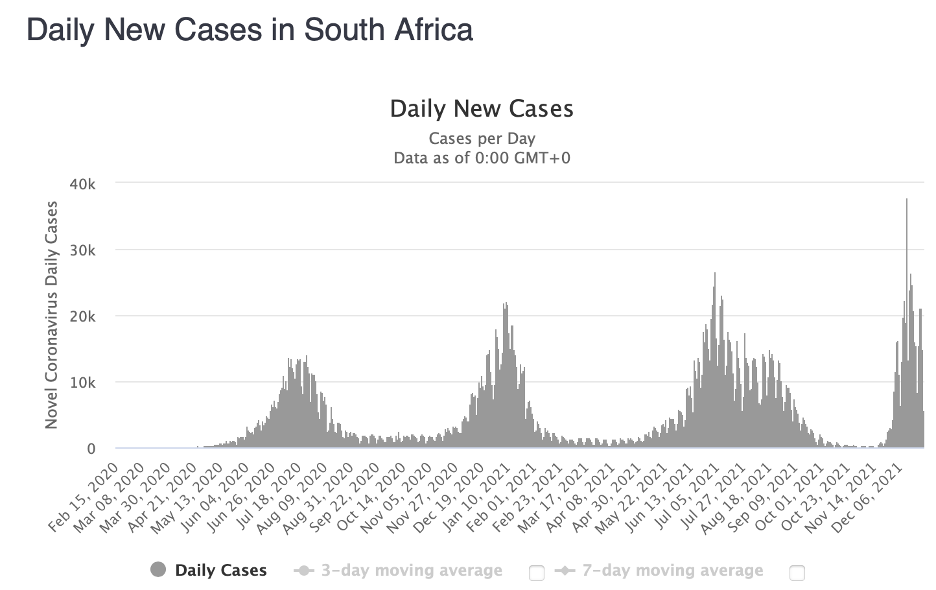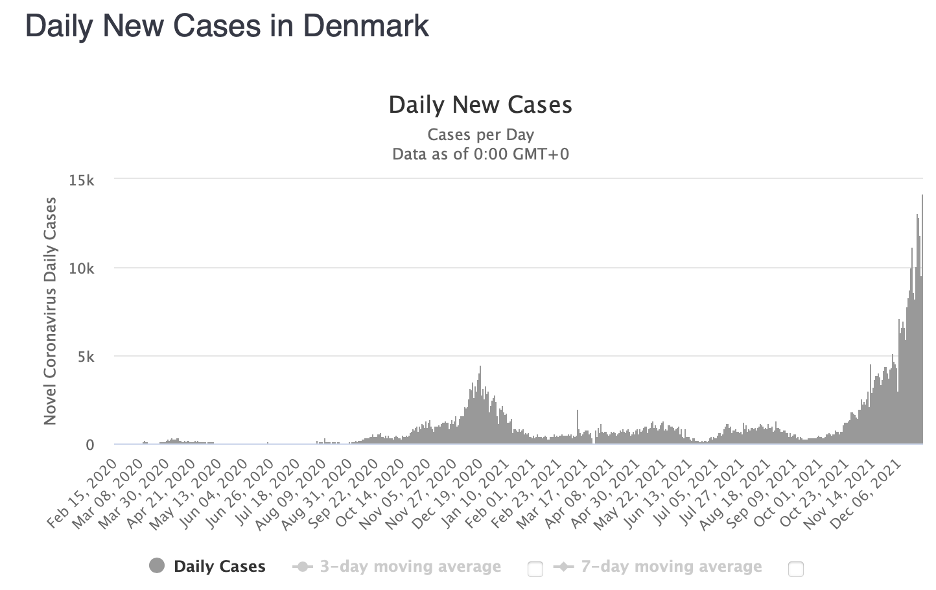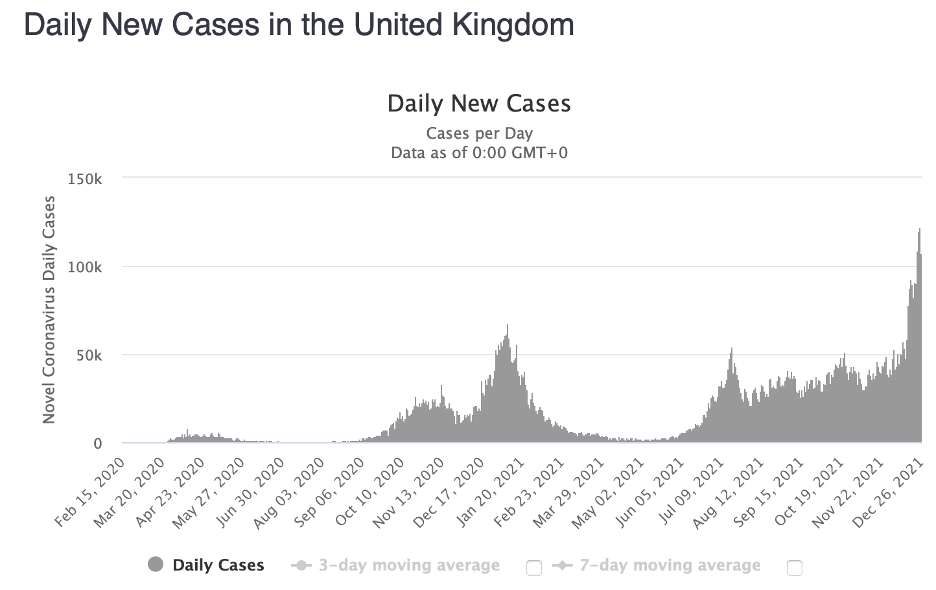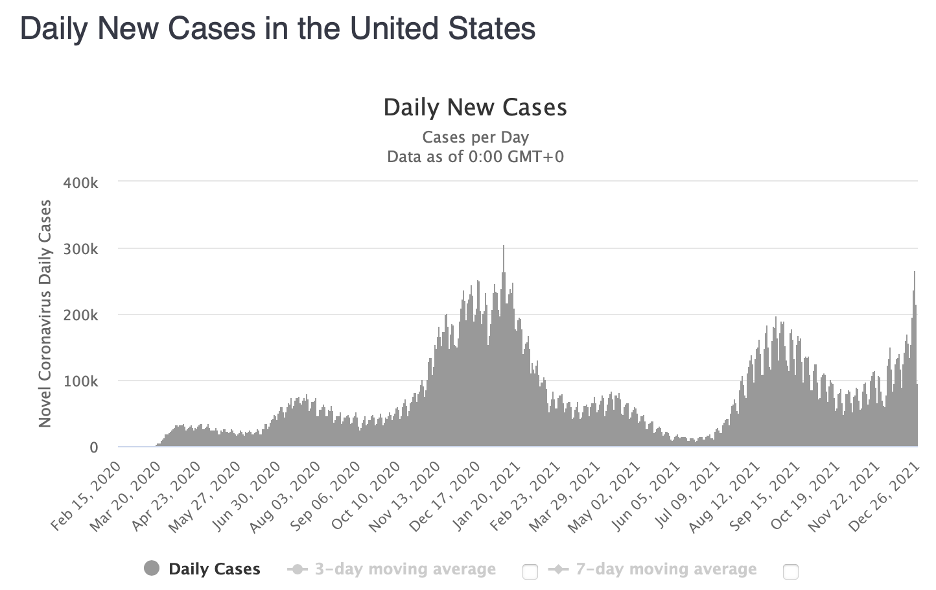So Long 2021…and AAS 239

Kevin Marvel American Astronomical Society (AAS)
From the Executive Office

It is hard to imagine a year more different and challenging than 2021. Although we continued to face the pandemic burden of the coronavirus, the scientific success of the vaccines and their positive impact began to show real benefit around the world. Members of our community whose teaching and research lives were turned upside down in 2020 began to see a path back to normality with in-person or hybrid teaching, travel once again became possible, with precautions, and in-person meetings began to return. And then along came Omicron. This column takes a look at how the rapid rise of this variant drove the AAS Board of Trustees to decide to cancel the 239th AAS meeting.
The AAS Board voted in early October to hold our annual winter meeting in person, with some content available online; a so-called "light hybrid" format. The discussion leading up to this decision was lengthy, with many different points of view and details of all types considered from how effectively we could handle real-time interaction to whether the meeting would be accessible fully and what it meant if some parts would not. Ultimately, the format of the meeting was a cost-driven decision, but the positive COVID case count trends of the late summer certainly buoyed the decision to meet in person vs. shifting to a fully virtual meeting. It felt like we had rounded a corner.
Providing fully virtual sessions and fully integrating the onsite content and participants requires substantial infrastructure both physically at the meeting location and online, nearly double the normal number of staff needed for either an in-person or online meeting, and additional support for AV, IT services, and software licenses. Recall that our typical winter meeting has up to 16 parallel sessions at one time. Our division meetings and smaller topical meetings do not face the same logistical burden.
Without charging a high registration fee for the full virtual option (which the Board decided we would not), we couldn’t afford to carry it out. We had already heard community members’ concerns about high prices for the fully virtual meetings we held as the pandemic upended the in-person meeting format (although they were about half the normal in-person meeting rate, mainly due to not having to provide food and beverages).
Other organizations, like the American Geophysical Union (AGU) and American Meteorological Society (AMS), with the additional resources they have given their organizational size and meeting attendance, undertook a more fully hybrid option for their winter meetings (AGU in early December and AMS in late January). AGU managed to hold their meeting with vaccination requirements, on-site testing, physical separation, and good virtual participation options, but attendance was well below their normal 25,000+. AGU in-person registration rates were slightly more expensive than online, but more expensive than what AAS had managed to charge for our fully virtual meetings. AMS is charging the same for both in-person and remote participation.
After the October vote by the Board reaffirming the in-person, light hybrid meeting, the AAS staff took up the challenge of arranging our first in-person meeting since January 2020, excited to meet together once again. We had a wide range of interesting special sessions, the Vice Presidents (VPs) developed an awesome roster of invited speakers to complement the prize talks, and we were blown away by the large number of contributed presentations, both oral and poster (and iPoster), that we have received.
We were on track for a normal winter meeting at last! You just had to ignore the requirements for vaccination and masking, substantial adjustments to our seating arrangements, food provision, and other safety-minded modifications to our policies and infrastructure.
To help encourage additional registration, we extended some deadlines, which put additional pressure on our meetings team, especially in the final days before the meeting, but the delays were helpful for bolstering registration. We ended up with almost 2,200 paying in-person attendees by mid-November.
That’s when worrying news out of South Africa got my attention. A new variant, with what appeared to be a very high rate of viral spread and an unknown health impact arrived on the scene. Thankfully it was detectable using the standard antigen tests and identified reliably compared to the other variants. In just days, the case counts had increased substantially in South Africa, especially in and around Johannesburg. In just another week, Omicron appeared in several countries and as far from South Africa as Hong Kong, reminding us that in the modern age, nowhere is really that far from anywhere else. Some government-imposed travel restrictions were issued, but not quickly enough to limit ongoing spread. European countries like Denmark, England, and the Netherlands started to show dramatic upticks in infection rates, exceeding the highest levels seen so far during the pandemic. US cases had not shot up yet, but our future was clear. The case trends we were seeing in other countries were just weeks away here in the US; exactly when our meeting was scheduled.




Graphs of Country case counts through 12/26/2021, via https://www.worldometers.info/coronavirus/
In my weekly call with AAS President Paula Szkody, I shared what new information had become available, the concerns expressed about our in-person meeting being shared online via social media channels, and the assessments of some medical experts we were in contact with. We became worried that the new variant would arrive and spread in the US in the weeks around our scheduled meeting, with an uncertain impact. Paula decided to convene a special meeting of the Board on 22 December to discuss and decide what to do, while seeking input from our attendees to see what their perspectives were. We received many emails, with a slight majority favoring canceling the conference.
Meanwhile, Kelly Clark, our CFOO, prepared several financial impact analyses to cover all possible decisions while engaging in dialog with our meetings team who were going full-speed ahead with the final organizational details for an in-person meeting. We were less than 14 business days from the start of the meeting, which, if canceled, would carry a substantial financial penalty and place new challenges onto our meetings staff.
The morning of the 22nd brought more grim news, Xi’an, a city of 13 million people in China had been moved into full lockdown mode with residents required to stay at home (current news reports state that none of the Xi’an cases was the Omicron variant), but also some hopeful news that the number of people being hospitalized in South Africa was lower than with other variants.
The Board met that afternoon in a 2.5-hour-long meeting. They expressed deep appreciation for all the efforts of the AAS staff to date and worried about what impact their decision would have on them; they worried about the risks to all meeting attendees and to those they would return home to or encounter on their travels; and they weighed the financial impact of cancellation, whether partial or full. They were also deeply concerned about the impact a cancellation would have on early-career and job-seeking astronomers.
In the end, the Board voted to cancel the in-person component and decided to meet again on 23 December to discuss whether the virtual component could move forward. We immediately notified our community while preparing cancellation letters for the hotels and meeting venue. The VPs met with meetings staff after the 22 December Board meeting to inform their thinking and we all gathered online on 23 December for another marathon Board meeting. By the time of the Board meeting, we had already received cancellation penalty invoices from two of the hotels.
It was clear that we did not have enough time to convert the poster and oral contributed talks to iPoster or iPoster+ formats or to schedule and set up all the oral sessions in a virtual mode. That meant we could only go forward with iPosters that are already scheduled, the plenary talks, and town halls. Many Trustees felt that would advantage those who had opted for iPosters while disadvantaging others, especially for job seekers and early-career attendees. Few believed large numbers of our in-person registrants would register for the online-only content.
Meanwhile, some emailed comments we received mentioned that the AGU meeting had been held and the news was positive. Only a handful of on-site infections had been detected through testing and nobody was showing serious symptoms. Of course, those infections would have most likely been brought to the meeting, not picked up at the meeting given the incubation period of the virus. In the days following, many more infections arose. At the time our Board met, there were around 45 reported cases. The official total as of 27 December 2021 is 90 infections, or about one percent of their total in-person attendance (estimated to be around 10,000 people), and 104 infections on an unofficial poll set up by some AGU members. The low numbers of infected people are directly attributable to the vaccination requirement and the timing of the meeting held before Omicron became widespread. A peek at the growing case counts in Louisiana in late December shows the dramatic difference from early December when the AGU meeting was held. One can only imagine what their case count would have been had they met just a week later.
Finally, with great sadness and some trepidation for the financial impact the decision would have, the Board voted to cancel the virtual meeting component as well and to regroup and redefine the 2022 summer meeting, AAS 240, as a large, vibrant conference to serve as the premier community meeting of the year. Everyone felt comfortable that the correct decision had been made, regardless of cost. Facing exponential growth in the number of cases due to the increased infectiousness of the variant and the uncertainty of its health impacts, the Trustees took the proper course of action putting people first. Everyone was still disappointed because they had been looking forward to getting together at last to renew the strong sense of community that our meetings generate. It was a tough decision.
Moving ahead, I and the AAS staff have a lot of work to fully unwind AAS 239, negotiate as best as we can to minimize the costs the cancellation incurs, and begin preparation for AAS 240 in Pasadena, California. Looking back at the process I am once again overwhelmed by the dedication and devotion of our Trustees to deliberative decision making and leadership of the AAS. They are an amazing group of people, and we should all be glad they agreed to serve as Trustees. I am even more impressed with the dedication and hard work of the AAS staff. They are a great team and do much to benefit our community both directly and indirectly. It is humbling to lead such dedicated can-do people and I deeply value their commitment to our organization and to each other.
As I look back on 2021, I have to say that of all the challenges we faced, none was greater than the lead-up to and cancellation of our winter meeting. I don’t believe an AAS winter meeting has ever been canceled before and it’s not comforting to know I am the first Executive Officer to oversee a cancellation. However, it is a great comfort to know that our elected leaders followed a serious and deliberative decision-making process to cancel our conference and move forward with the positive goal of re-imagining AAS 240 as the premier conference of the year.
We know that SARS-CoV-2 is here to stay. It will become endemic, and the experts say its negative impacts will decline with time. But with Omicron, we’re not there yet. The coming weeks may confirm our concerns for the safety of our meeting attendees facing this rapidly spreading variant, or they may not. However, given the uncertainties and risks, I know the Board did the right thing. I hope our attendees and members recognize the hard decision they had to make. Send them a thank you to let them know you do.
As we enter 2022, I send you all best wishes for a safe and enjoyable new year. I am sure 2022 will be better than 2021 has been and hope this turns out to be true for you, your family, colleagues, and loved ones as well.
As always, I welcome your thoughts and input. See you at AAS 240 in Pasadena!
— Kevin B. Marvel
Executive Officer
American Astronomical Society

